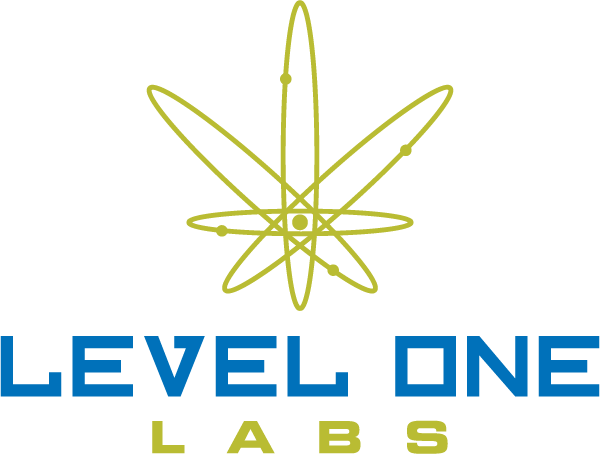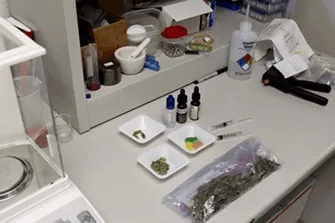HOW TO TEST MARIJUANA IN ARIZONA? THIS COUNCIL IS ABOUT TO DECIDE
January 7, 2020
Your medical marijuana may contain contaminants including mold or pesticides, but a new law created a process that will lead to tests next year.
Photo Credit: Ray Stern
Arizona’s medical cannabis industry has long been a Wild West without mandatory testing, but a new state advisory council is about to settle in and bring some law and order.
Officials at the state Department of Health Services picked members for a medical marijuana testing advisory council last week, meeting the first requirement of a new law that requires widespread cannabis testing to start by November 2020. Up until this point, Arizona’s pot industry hasn’t had any sort of government-certified testing program.
The law signed by Governor Doug Ducey in June, SB 1494, says dispensaries must test marijuana products for “microbial contamination, heavy metals, pesticides, herbicides, fungicides, growth regulators, and residual solvents,” as well as confirm each product’s potency.
The council, then, must help the DHS design a program that can achieve that level of regulation. The group will hash out everything from potency limits to what happens when a product fails to meet standards, and submit recommendations to the governor by the end of the year. The first of four scheduled public meetings will take place this Thursday, September 26.
The 12-member council includes faces from all sides of the industry, including representatives from Arizona’s dispensary association, a trade association and a cannabis laboratory association. It also invites to the table dispensary agents, lab employees, a patient, a caregiver, a doctor who works with patients in the criminal justice system, and the head of the Department of Public Safety’s Crime Lab.
Demitri Downing, founder of Arizona’s Marijuana Industry Trade Association, said he’s pleased with DHS’ picks for the council. He said some of the members are industry businessmen, but their priority is still patients.
“People will say, ‘Oh, it’s an industry-driven testing panel.’ But it’s not,” Downing said. “They were advocates first who evolved into the industry. So they have big hearts and big consciences. I’m confident that they’ll design a really good program.”
But building a program for a state that’s never had one won’t be without its challenges. The council faces tough questions about what to do with buds, edibles, or concentrates that fail to meet standards. Tabitha Hauer, a council member and current lab owner, said her lab doesn’t have a pass or fail system in place yet.
“We just give them the results,” she said. “And they can do what they want.”
The council will also have to figure out how to toe the line between keeping patients safe and adding too many layers of regulation.
“What we need to keep our eye on is the drumbeat of patient protection and public health, and also centrist science that doesn’t create any artificial chokepoints,” said George Griffeth, a council member and the founder of the Arizona Cannabis Laboratory Association.
Different council representatives will bring different priorities to the table. For lawyer Ryan Hurley, for example, who's a vice president and board member of the Arizona Dispensaries Association, a range of laboratories to choose from is key.
“We want to make sure there’s going to be ample competition amongst labs and that those labs will have somebody watching over them as well so we’re not being held hostage by one or two businesses,” Hurley said.
There are already at least 11 labs in existence across the state, but whether dispensaries test their products has been optional. Dispensaries use tests for marketing purposes, so they can certify how much THC is in the products they’re selling, or to experiment with new products, according to Hauer.
The number of laboratories likely will rise sharply in the next year as dispensaries prepare for testing requirements, and as a recreational marijuana initiative likely to be on the ballot for 2020 appeals to chemists eager to break into a growing industry.
But Hurley said that even with all this change afoot, he thinks dispensaries will be able to handle testing requirements without too much trouble. Already, he said, most of the dispensaries he works with test their products.
The requirement is new, he said, but the habits are already formed.
“As long as the regulations that come down are reasonable, it shouldn’t be a shock to the system."
A full list of the council members and groups or roles they represent is below:
- Ryan Hurley, Arizona Dispensaries Association
- George Griffeth, Arizona Cannabis Laboratory Association
- Steve Cottrell, Marijuana Industry Trade Association
- Murray Stein, registered dispensary agent
- Matthew LaScala, registered dispensary agent
- Ricky Hendrickson, registered dispensary agent
- Tabitha Hauer, Desert Valley Testing
- Hope Jones, laboratory scientist
- Joseph DeMenna, registered qualifying patient
- Jay Neri, registered designated caregiver
- Vince Figarelli, superintendent of the Department of Public Safety’s Crime Lab
- Stephen Grams, licensed health care provider

